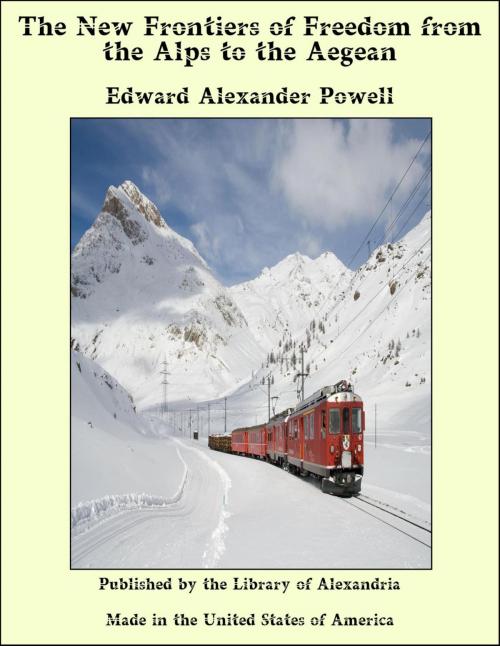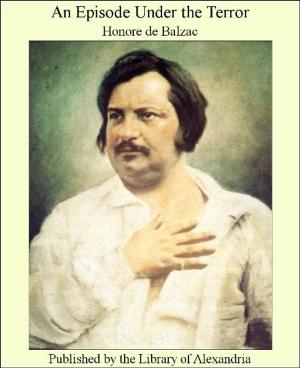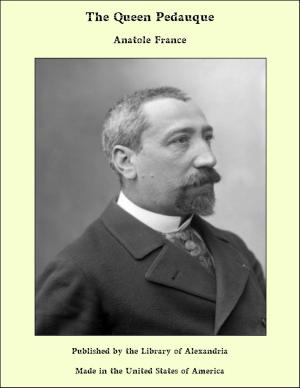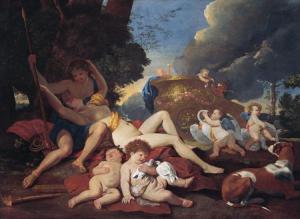The New Frontiers of Freedom from the Alps to the Aegean
Nonfiction, Religion & Spirituality, New Age, History, Fiction & Literature| Author: | Edward Alexander Powell | ISBN: | 9781465579454 |
| Publisher: | Library of Alexandria | Publication: | March 8, 2015 |
| Imprint: | Language: | English |
| Author: | Edward Alexander Powell |
| ISBN: | 9781465579454 |
| Publisher: | Library of Alexandria |
| Publication: | March 8, 2015 |
| Imprint: | |
| Language: | English |
Owing to the disturbed conditions which prevailed throughout most of southeastern Europe during the summer and autumn of 1919, the journey recorded in the following pages could not have been taken had it not been for the active cooperation of the Governments through whose territories we traveled and the assistance afforded by their officials and by the officers of their armies and navies, to say nothing of the hospitality shown us by American diplomatic and consular representatives, relief-workers and others. From the Alps to the Ægean, in Italy, Dalmatia, Montenegro, Albania, Macedonia, Turkey, Rumania, Hungary and Serbia we met with universal courtesy and kindness. For the innumerable courtesies which we were shown in Italy and the regions under Italian occupation I am indebted to His Excellency Francisco Nitti, Prime Minister of Italy, and to former Premier Orlando, to General Armando Diaz, Commander-in-Chief of the Italian Armies; to Lieutenant-General Albricci, Minister of War; to Admiral Thaon di Revel, Minister of Marine; to Vice-Admiral Count Enrice Mulo, Governor-General of Dalmatia; to Lieutenant-General Piacentini, Governor-General of Albania, to Lieutenant-General Montanari, commanding the Italian troops in Dalmatia; to Rear-Admiral Wenceslao Piazza, commanding the Italian forces in the Curzolane Islands; to Lieutenant-Colonel Antonio Chiesa, commanding the Italian troops in Montenegro; to Colonel Aldo Aymonino, Captain Marchese Piero Ricci and Captain Ernesto Tron of the Comando Supremo, the last-named being our companion and cicerone on a motor-journey of nearly three thousand miles; to Captain Roggieri of the Royal Italian Navy, Chief of Staff to the Governor-General of Dalmatia; to Captain Amedeo Acton, commanding the "Filiberto"; to Captain Fausto M. Leva, commanding the "Dandolo"; to Captain Giulio Menin, commanding the "Puglia," and to Captain Filipopo, commanding the "Ardente," all of whom entertained us with the hospitality so characteristic of the Italian Navy; to Lieutenant Giuseppe Castruccio, our cicerone in Rome and my companion on dirigible and airplane flights; to Lieutenant Bartolomeo Poggi and Engineer-Captain Alexander Ceccarelli, respectively commander and chief engineer of the destroyer "Sirio," both of whom, by their unfailing thoughtfulness and courtesy added immeasurably to the interest and enjoyment of our voyage down the Adriatic from Fiume to Valona; to Lieutenant Pellegrini di Tondo, our companion on the long journey by motor across Albania and Macedonia; to Lieutenant Morpurgo, who showed us many kindnesses during our stay in Salonika; to Baron San Martino of the Italian Peace Delegation; to Lieutenant Stroppa-Quaglia, attaché of the Italian Peace Delegation, and, above all else, to those valued friends, Cavaliere Giuseppe Brambilla, Counselor of the Italian Embassy in Washington; Major-General Gugliemotti, Military Attaché, and Professor Vittorio Falorsi, formerly Secretary of the Embassy at Washington, to each of whom I am indebted for countless kindnesses. No list of those to whom I am indebted would be complete, however, unless it included the name of my valued and lamented friend, the late Count V. Macchi di Cellere, Italian Ambassador to the United States, whose memory I shall never forget. I welcome this opportunity of expressing our appreciation of the hospitality shown us by their Majesties King Ferdinand and Queen Marie of Rumania, who entertained us at their Castle of Pelesch, and of acknowledging my indebtedness to His Excellency M. Bratianu, Prime Minister of Rumania, and to M. Constantinescu, Rumanian Minister of Commerce.
Owing to the disturbed conditions which prevailed throughout most of southeastern Europe during the summer and autumn of 1919, the journey recorded in the following pages could not have been taken had it not been for the active cooperation of the Governments through whose territories we traveled and the assistance afforded by their officials and by the officers of their armies and navies, to say nothing of the hospitality shown us by American diplomatic and consular representatives, relief-workers and others. From the Alps to the Ægean, in Italy, Dalmatia, Montenegro, Albania, Macedonia, Turkey, Rumania, Hungary and Serbia we met with universal courtesy and kindness. For the innumerable courtesies which we were shown in Italy and the regions under Italian occupation I am indebted to His Excellency Francisco Nitti, Prime Minister of Italy, and to former Premier Orlando, to General Armando Diaz, Commander-in-Chief of the Italian Armies; to Lieutenant-General Albricci, Minister of War; to Admiral Thaon di Revel, Minister of Marine; to Vice-Admiral Count Enrice Mulo, Governor-General of Dalmatia; to Lieutenant-General Piacentini, Governor-General of Albania, to Lieutenant-General Montanari, commanding the Italian troops in Dalmatia; to Rear-Admiral Wenceslao Piazza, commanding the Italian forces in the Curzolane Islands; to Lieutenant-Colonel Antonio Chiesa, commanding the Italian troops in Montenegro; to Colonel Aldo Aymonino, Captain Marchese Piero Ricci and Captain Ernesto Tron of the Comando Supremo, the last-named being our companion and cicerone on a motor-journey of nearly three thousand miles; to Captain Roggieri of the Royal Italian Navy, Chief of Staff to the Governor-General of Dalmatia; to Captain Amedeo Acton, commanding the "Filiberto"; to Captain Fausto M. Leva, commanding the "Dandolo"; to Captain Giulio Menin, commanding the "Puglia," and to Captain Filipopo, commanding the "Ardente," all of whom entertained us with the hospitality so characteristic of the Italian Navy; to Lieutenant Giuseppe Castruccio, our cicerone in Rome and my companion on dirigible and airplane flights; to Lieutenant Bartolomeo Poggi and Engineer-Captain Alexander Ceccarelli, respectively commander and chief engineer of the destroyer "Sirio," both of whom, by their unfailing thoughtfulness and courtesy added immeasurably to the interest and enjoyment of our voyage down the Adriatic from Fiume to Valona; to Lieutenant Pellegrini di Tondo, our companion on the long journey by motor across Albania and Macedonia; to Lieutenant Morpurgo, who showed us many kindnesses during our stay in Salonika; to Baron San Martino of the Italian Peace Delegation; to Lieutenant Stroppa-Quaglia, attaché of the Italian Peace Delegation, and, above all else, to those valued friends, Cavaliere Giuseppe Brambilla, Counselor of the Italian Embassy in Washington; Major-General Gugliemotti, Military Attaché, and Professor Vittorio Falorsi, formerly Secretary of the Embassy at Washington, to each of whom I am indebted for countless kindnesses. No list of those to whom I am indebted would be complete, however, unless it included the name of my valued and lamented friend, the late Count V. Macchi di Cellere, Italian Ambassador to the United States, whose memory I shall never forget. I welcome this opportunity of expressing our appreciation of the hospitality shown us by their Majesties King Ferdinand and Queen Marie of Rumania, who entertained us at their Castle of Pelesch, and of acknowledging my indebtedness to His Excellency M. Bratianu, Prime Minister of Rumania, and to M. Constantinescu, Rumanian Minister of Commerce.















